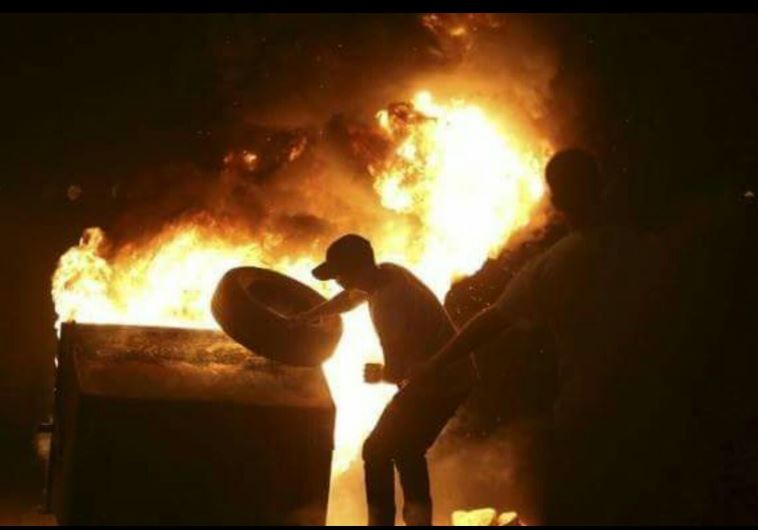Morning after violent riots, Jaffa residents take stock
Wednesday saw some of the worst rioting in Jaffa between Jews and Arabs since the second intifada.
 Pro-Palestinian demonstrators light garbage bin on fire during protests in Jaffa, October 6, 2015Updated:
Pro-Palestinian demonstrators light garbage bin on fire during protests in Jaffa, October 6, 2015Updated: